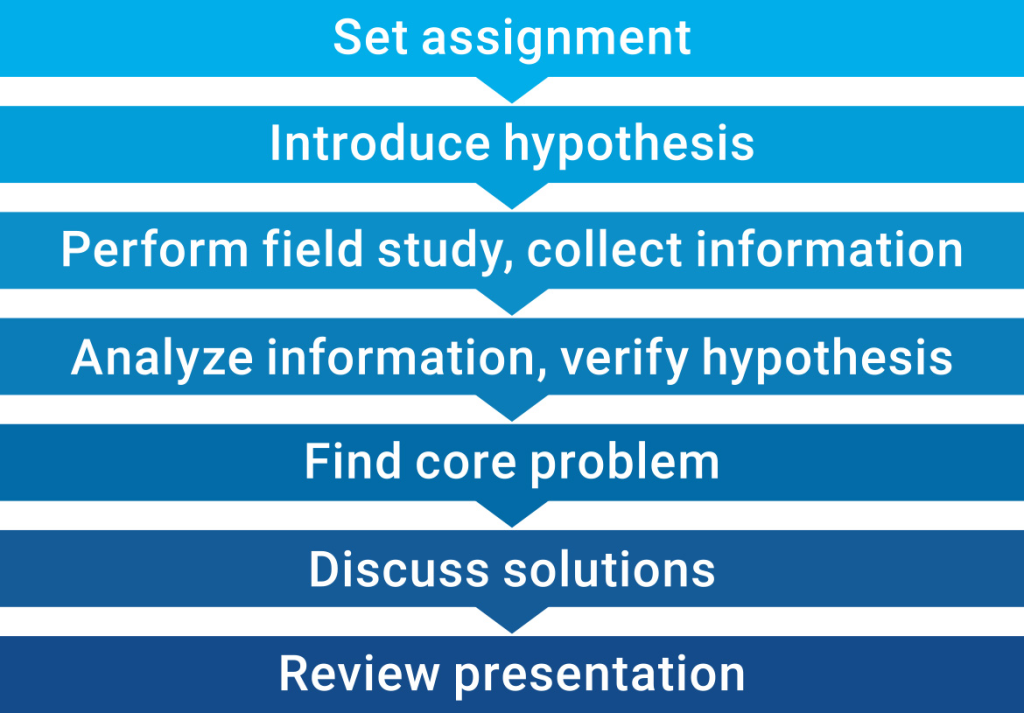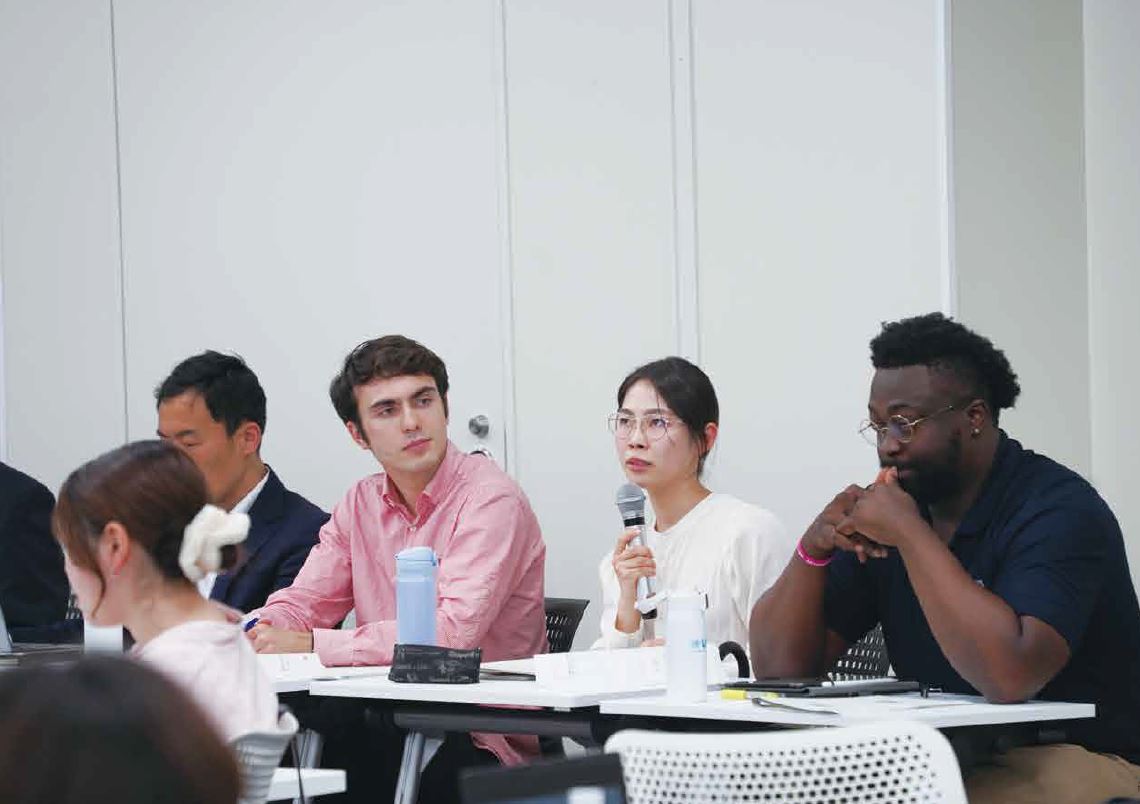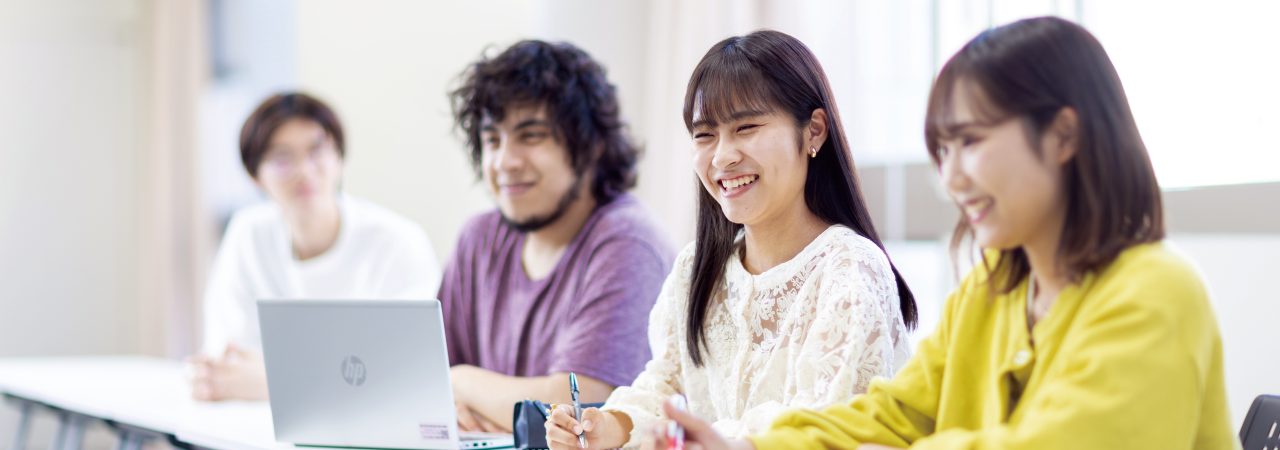Take on real-life challenges faced by our partner companies and organizations

PBL is the core of our curriculum.
Students form teams of four and experience the process of discovering core issues and exploring solutions through preliminary research, group work, and on-site investigations for real-world issues faced by companies, local governments, non-profits, and international organizations. At the start of their first year, students take the required Introduction to Social System Design and Introduction to Project-Based Learning as they discover the knowledge and skills that they lack. In their 2nd and 3rd-years, students investigate the causes of multiple issues faced by companies and propose solutions.

You shall find every corner of Hiroshima as your classroom!
Students of Eikei University of Hiroshima will have opportunities to tackle real-life problems faced by partner companies and organizations, as part of the coursework. Such experiences shall make students to think by themselves and to make appropriate action for solving those problems, while the coursework will guide them with various skills and knowledge to come up with the best solutions.
Examples of PBL exercises
| Sample Categories | Project Themes |
| Private-sector companies (Food products) | Expanding the world of salad to promote vegetable consumption |
| Private-sector companies (Precision devices) | Helping prevent the progression of frailty in the elderly |
| Private-sector companies (Regional revitalization) | Continually growing the regional resource of lemons |
| Private-sector companies (IT) | The active participation of highly skilled foreign professionals has yet to progress in small and medium-sized enterprises in Hiroshima Prefecture |
| Public interest incorporated foundation | Engaging in initiatives so that 30% of all directors are female |
Learn from real-life problems faced by partner companies and organizations
In order to actively incorporate real-life problems into our class activities, the “Platform” will be established in Hiroshima Prefecture in cooperation with various entities off the campus, such as private companies, NPOs, international organizations and local governments.
The Platform is expected to expand further to provide more opportunities for Eikei students.
Eikei University of Hiroshima Council of Practical Learning

Degree Project
The degree project will be done in the third or fourth year to summarize the four years of learning and practice.Students set their project theme freely and discover solutions.
The one-year-long degree project will be done in the third or fourth year. Students set their project theme freely and discover solutions. Research for individual degree projects is performed through seminars, with 2 briefing sessions (mid-term and final). We invite stakeholders of the company, administrative body, or the like to said briefing sessions as external evaluators, getting feedback on research from perspectives including novelty and feasibility. Students incorporate that into a report and announce their results at a public presentation.
Degree Project(Overall summary)

A Partner’s Voice United Nations Institute for Training and Research (UNITAR)
As the United Nations Institute for Training and Research is the only U.N. organization within Hiroshima and the Chugoku Region of Japan we aim to be open and communicative with the local population. Our aim was to explore fresh and flexible ideas from students ̓unique perspectives on how international organizations like the UN can better engage with diverse local audiences such as within Hiroshima. The students took a deep dive into the topic, examining not only communication challenges but also questioning the fundamental roles and perceptions of the United Nations at the local level. The students offered well-grounded ideas and explored the topic from innovative angles that broadened our thinking. Their passion, critical thinking, and ability to propose concrete ideas were truly inspiring, both to UNITAR staff and local collaborators. We saw great potential in their proposals and were reminded of the powerful role youth can play in shaping global discourse with a local touch. We are committed to reflecting on these valuable insights and continuing our efforts to make the work of the United Nations more accessible and meaningful to people in all communities.


